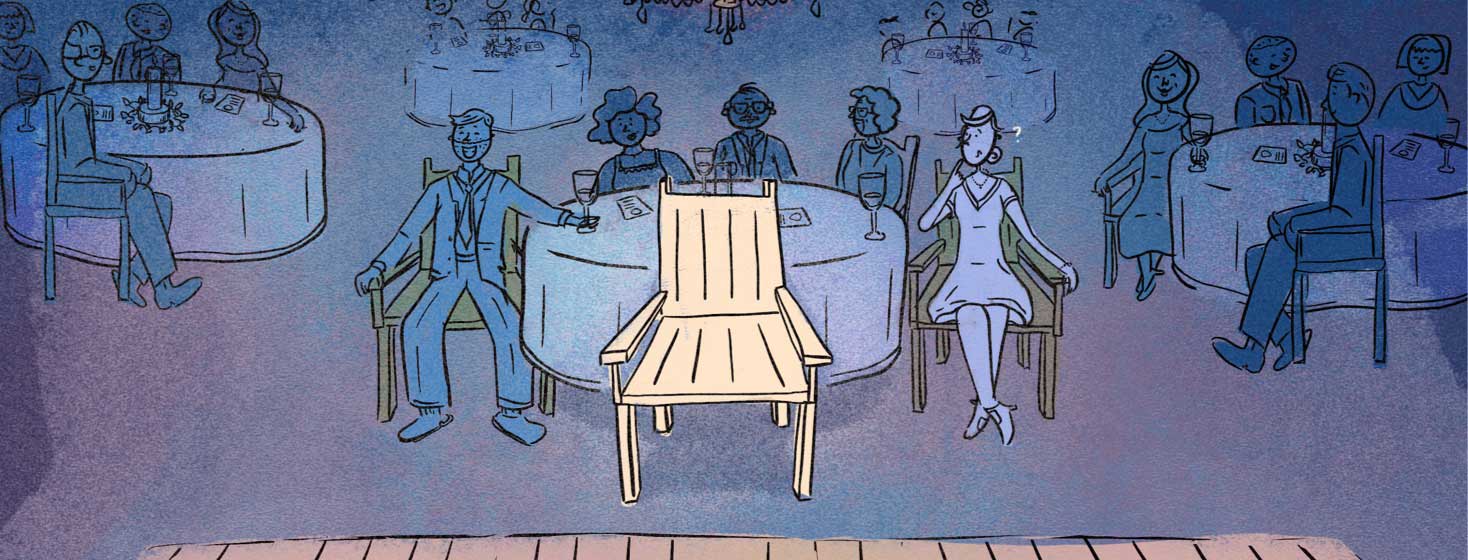The Social Impact of Living With IBD
I was diagnosed with Crohn's disease when I was 21 years old. In some ways, I am lucky in that I did not have to endure the excruciating symptoms during my school years, and for that I am grateful. However, there is never a good time to be diagnosed with Crohn's.
We all know the emotional, physical, spiritual impacts Crohn's and colitis can have on our lives, and they aren't easy. But today, I thought I would write about the social impacts this disease creates on our lives. Let's take a look:
Social Life Struggles With Crohn's and UC
1. Missing Out
Firstly, I think the biggest blow IBD throws into your social life is missing events. It's pretty obvious why – we are just too sick to attend. Weddings, dinners, baby showers, birthday parties, beach days, road trips, vacations, hikes, ski trips, weekend getaways... The list is endless.
Dealing with an Crohn's or UC diagnosis can completely take over your life. When you are in a severe flare, forget it, just the idea of attending an event is impossible.
But the sad part is, even if you aren't flaring and just have fatigue and some abdominal pain, that already is enough to ruin the day. Even on a good day with IBD, socializing is hard and staying home is usually a more attractive option.
2. Losing touch with friends
Because you are not attending social events and getting out much, it is not surprising that you start to lose touch with friends. Even if you have supportive friends who are rooting for you, it is still hard to stay in the loop when you are never around.
You miss out on new memories, even perhaps meeting new friends introduced to the group. Friends might have children and you don't have the energy for visits or babysitting, so naturally things in friendships and family relationships shift.
Social media can be especially saddening to scroll through, too, knowing that if you were healthy you could be right there by your family/friends' sides. With family, as well, watching babies grow and wishing you had the energy to be around more can be hard.
3. Never wanting to go out
Another aspect that is interesting with an IBD diagnosis is the notion that you spend so much time home not socializing due to being ill, that even on a day you would be able to attend an event, you choose not to go.
This could be due to many reasons. One being that you feel awkward showing up after so much time being absent. You feel out of the loop. And perhaps you don't want to chat about why you have been missing.
Another reason might be that you don't care for socializing anymore because you have been alone for so much. You just don't want to put the energy into going out anymore. Staying home is comfortable and you no longer want to ever feel uncomfortable anymore, considering all you go through with your diagnosis.
4. Anxiety of being away from a bathroom
A huge reason why socializing is hard with Crohn's or UC is that being away from a bathroom can cause anxiety.
You never know when symptoms will hit. Being out in public is hard because there might not be a bathroom accessible. What happens if you start to have urgency or get nauseous? Where do you go? What if you have an accident? The "what ifs" are too much sometimes, so staying home is just more safe.
With IBD, your social life takes a hit
Anyone with IBD knows that your social life takes a hit. Things definitely change after being diagnosed, and yes, you don't socialize as much because focusing on your health becomes your top priority.
But there's hope it won't always be that way
However, I do want to offer some hope for those reading. I am now 34 and living a full, exciting life. I socialize whenever I want. I travel. I exercise. I attend dinners and parties. Road trips are no big deal and flying on planes is fun again.
Don't think that things can't improve – because they can. Always be proactive in doing research and trying new things to improve your health, and if you aren't getting relief with a certain medication, ask you doctor about changing to a new one.
Always push towards improving and feeling better. And when you feel better, your social life will get better, too.

Join the conversation